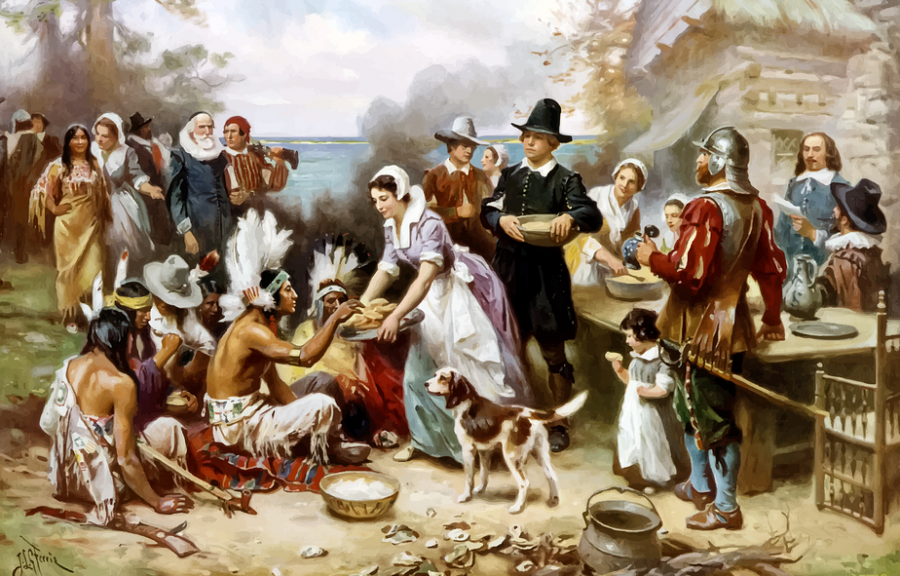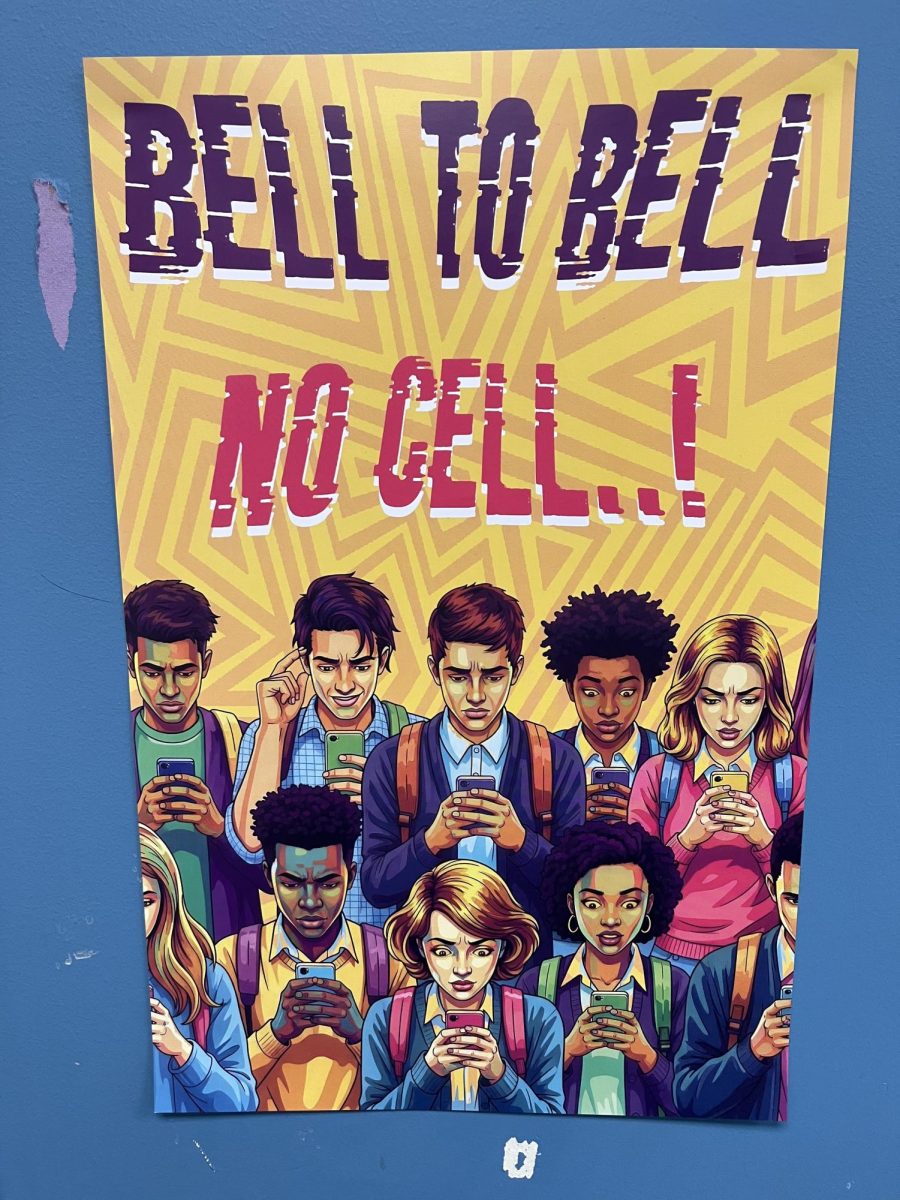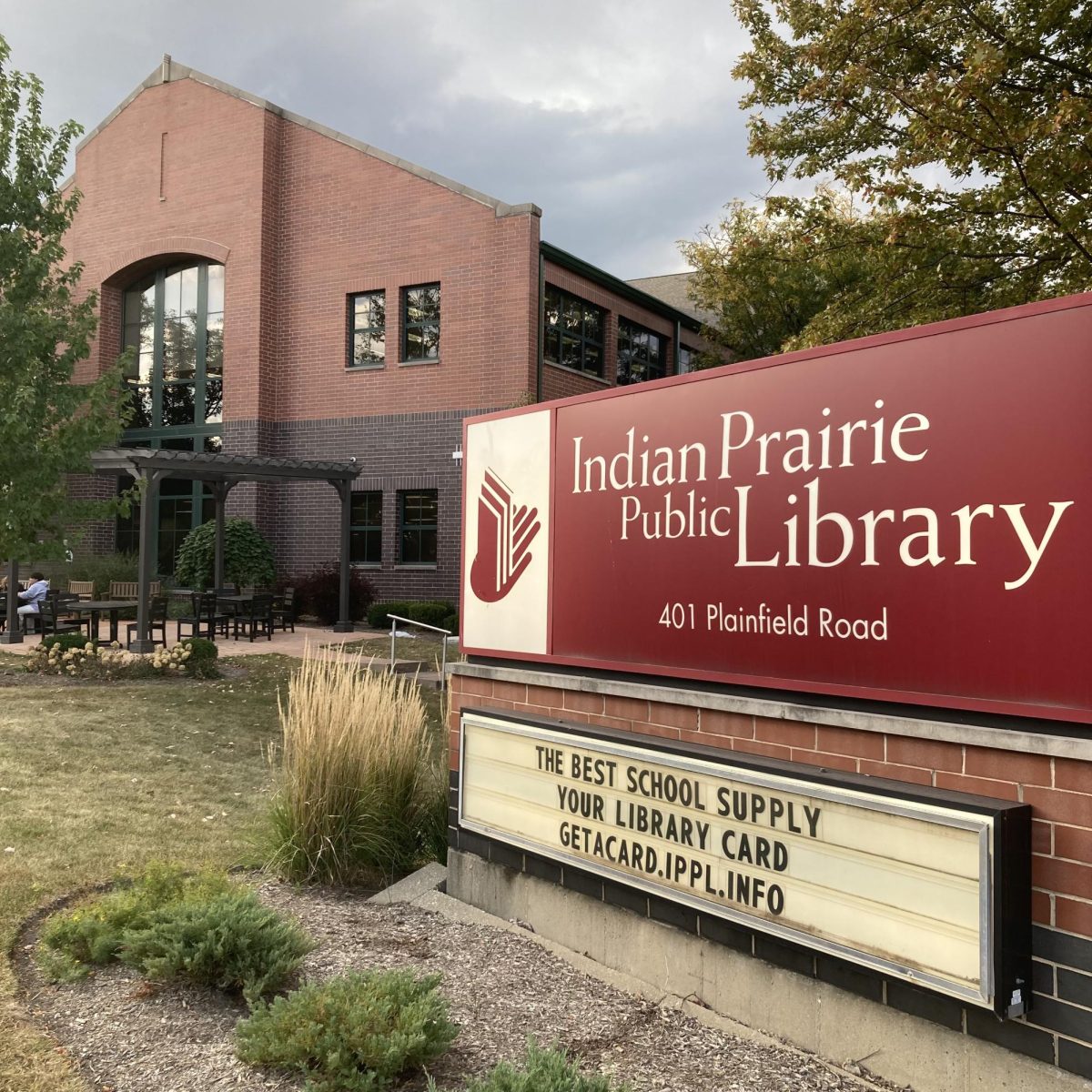The Real Story Behind Thanksgiving
Thanksgiving has always been regarded as a happy holiday, a time where families gather to have an excellent meal and be grateful. But the holiday’s roots are anything but happy.
November 25, 2020
Most kids can remember their first history lessons about Thanksgiving, or reading illustrated books about the origins of the holiday. There were drawings of Native Americans and pilgrims having a grand feast with dancing and festivities, and elementary students are taught a happy and idealistic version of the story that is incredibly far from the real event.
The whole concept of a Thanksgiving was actually nothing new to the colonizers and Natives. Historians have found evidence of “thanksgiving” celebrations taking place in both indigenous tribes and in England even before the arrival of the Mayflower pilgrims in 1620. The English and Natives used these days to celebrate successful harvests and gratitude for God and the earth.
When the pilgrims arrived at Plymouth Rock, they came across an abandoned village. It had been left behind by the Patuxent people, who had been almost completely erased from the area due to European diseases. A single man by the name of Tisquantum—better known as Squanto—was the only survivor. Close to this abandoned village was another tribe: the Wompanoags. When the settlers arrived to this area, they were greeted by Ousamequin, the chief of the Wompanoag tribe. Since he couldn’t speak English, Squanto (who had experience with English after being kidnapped and sold into slavery in Europe) assisted the two groups by acting as a translator and intermediary.
Things became very tense: the Wompanoag population was dwindling due to disease and starvation, and the English settlers were also starving and had lost many lives on the voyage to the new world. Some of the settlers decided to raid the villages and take the food the tribe had stored for the winter, and the Wompanoag people chose to be gracious and avoid violence in response. They came to an agreement: the tribe would teach the settlers agricultural skills and how to fish/hunt for food, as long as they kept their distance and didn’t bother them. However, it didn’t last for long. Unlike the ideal story we are told today, the English went on to commit heinous acts against the Natives. They exploited their land, stole from the tribe, and continued their colonization of North America with complete disregard to the agreement that was created.
Many people are now trying to reconcile the past and bring awareness to the reality of Thanksgiving. Educate yourself on the history of colonization, find information about the indigenous tribes of your area, and learn from others.






Brian Thelen • Nov 30, 2020 at 3:00 pm
Nice last paragraph. A good reminder for us. And really interesting image. A lot to think about there.